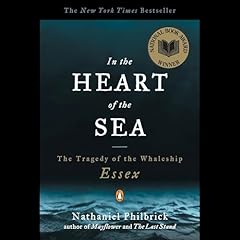
Bunker Hill
A City, a Siege, a Revolution
No se pudo agregar al carrito
Solo puedes tener X títulos en el carrito para realizar el pago.
Add to Cart failed.
Por favor prueba de nuevo más tarde
Error al Agregar a Lista de Deseos.
Por favor prueba de nuevo más tarde
Error al eliminar de la lista de deseos.
Por favor prueba de nuevo más tarde
Error al añadir a tu biblioteca
Por favor intenta de nuevo
Error al seguir el podcast
Intenta nuevamente
Error al dejar de seguir el podcast
Intenta nuevamente
 Exclusivo para miembros Prime: ¿Nuevo en Audible? Obtén 2 audiolibros gratis con tu prueba.
Exclusivo para miembros Prime: ¿Nuevo en Audible? Obtén 2 audiolibros gratis con tu prueba.
Elige 1 audiolibro al mes de nuestra inigualable colección.
Acceso ilimitado a nuestro catálogo de más de 150,000 audiolibros y podcasts.
Accede a ofertas y descuentos exclusivos.
Premium Plus se renueva automáticamente por $14.95 al mes después de 30 días. Cancela en cualquier momento.
Compra ahora por $20.25
-
Narrado por:
-
Chris Sorensen
In the opening volume of his acclaimed American Revolution series, Nathaniel Philbrick turns his keen eye to pre-Revolutionary Boston and the spark that ignited the American Revolution. In the aftermath of the Boston Tea Party and the violence at Lexington and Concord, the conflict escalated and skirmishes gave way to outright war in the Battle of Bunker Hill. It was the bloodiest conflict of the revolutionary war, and the point of no return for the rebellious colonists. Philbrick gives us a fresh view of the story and its dynamic personalities, including John Adams, Samuel Adams, John Hancock, Paul Revere, and George Washington. With passion and insight, he reconstructs the revolutionary landscape—geographic and ideological—in a mesmerizing narrative of the robust, messy, blisteringly real origins of America.
Los oyentes también disfrutaron:




















Las personas que vieron esto también vieron:


















Should be required reading...
Se ha producido un error. Vuelve a intentarlo dentro de unos minutos.
A great work to cover a rarely recorded time
Se ha producido un error. Vuelve a intentarlo dentro de unos minutos.
Opinionated History
Se ha producido un error. Vuelve a intentarlo dentro de unos minutos.
Great book, poorly read
Se ha producido un error. Vuelve a intentarlo dentro de unos minutos.
Birth of Liberty, in stark detail. Not your father's history book.
Se ha producido un error. Vuelve a intentarlo dentro de unos minutos.


